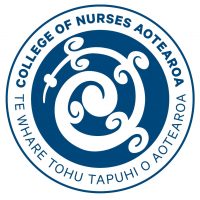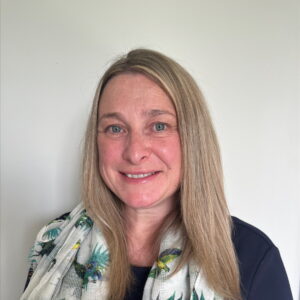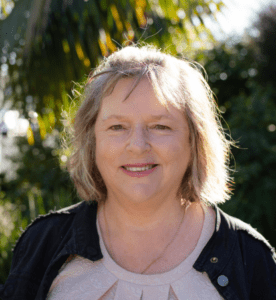
24 - 25 November 2025 | Grand Millennium, Auckland
Nursing and the law
Stay up-to-date on the latest legal issues in nursing practice at the Nursing and the Law Conference
Nursing and the Law 2025 is a must-attend conference for nurses, nurse leaders, and healthcare professionals navigating an increasingly complex legal and regulatory environment.
With escalating demands around accountability, patient rights, safe staffing, and emerging issues like end-of-life care and AI, nurses are more exposed than ever to ethical and legal risk. This event provides essential updates, expert insights, and practical tools to help nurses stay compliant, empowered, and protected in your practice. Whether managing teams, making clinical decisions, or advocating for patient safety, this conference will equip the attendees with the knowledge to uphold professional standards and deliver care within the law.
Add Your Heading Text Here

Sub Heading Here
Ut elit tellus, luctus nec ullamcorper mattis, pulvinar dapibus leo.Lorem ipsum dolor sit amet

Sub Heading Here
Ut elit tellus, luctus nec ullamcorper mattis, pulvinar dapibus leo.Lorem ipsum dolor sit amet

Sub Heading Here
Ut elit tellus, luctus nec ullamcorper mattis, pulvinar dapibus leo.Lorem ipsum dolor sit amet

Sub Heading Here
Ut elit tellus, luctus nec ullamcorper mattis, pulvinar dapibus leo.Lorem ipsum dolor sit amet
Key themes not to be missed
Legal Compliance in Practice
Understanding new laws, scopes of practice, and regulatory updates.
Navigating privacy, confidentiality, end-of-life and ethical decision-making.
Role of the Practice & Risk Management
Clarifying roles, delegation, documentation, and professional liability.
Expanded autonomy in primary, mental and rural care.
Workforce wellbeing and Developments
Addressing legal duties around mental health, moral injury, and safe staffing.
Digital Nursing & AI – benefits & risks.
Te Tiriti o Waitangi & Cultural Safety
Embedding equity, partnership, and culturally responsive care
Add Your Heading Text Here
We are currently working on the programme and agenda.
If you would like to have input into our research programme please email xxxx@brightstar.co.nz
KEY SPEAKERS FOR 2025
Our 2025 key lineup brings together thought leaders, trailblazers and expert practitioners in nursing. Check out more today.

Catherine Byrne
Chief Executive/Registrar
Nursing Council of New Zealand

Kerri Nuku
Kaiwhakahaere
New Zealand Nurses Organisation

Kate Weston
College of Nurses Aotearoa (NZ)
Supporting organisation
We’re super excited to have the College of Nurses Aotearoa as a supporting organisation for this conference.
If you’re a member of the College of College of Nurses Aotearoa get in touch with them to get a discount (code) on the current pricing.

Why you need to attend
- Professional Development & Risk Management: Stay current on legal updates and learn to reduce risks in your practice.
Cultural and Ethical Practice: Understand your obligations under Te Tiriti and navigate the use of new technologies like AI.
- Advocacy & Networking: Advocate for safe staffing solutions and connect with leaders in the field.

Venue
The location and how you can get there
Address
Grand Millennium Auckland
71 Mayoral Drive, Cnr Vincent Street, Auckland 1010
Agenda
8:30 | Registration and Coffee |
8:45 | Mihi whakatau |
9:00 | Welcoming remarks from the Chair Kate Weston, Executive Director, College of Nurses Aotearoa |
9:10 | Legal literacy in Nursing and the code of rights
Simone Tune, Special Counsel, Duncan Cotterill |
9:50 | Policy in practice: What the latest healthcare reforms mean for Nurses
Kate Weston, Executive Director, College of Nurses Aotearoa |
10:20 | Morning break |
10:50 | Honouring Te Tiriti in practice: Bringing Tiriti commitments to life in nursing
Kerri Nuku, Kaiwhakahaere, New Zealand Nurses Organisation |
11:30 | Reckoning with the past: Nursing practice and the legacy of abuse in care
Leoni Mcinroe, Registered Anaesthetic Technician, Survivor of torture and abuse from the Lake Alice Child and Adolescent Unit, Advocate for social justice, justice for survivors and accountability Catherine Byrne, Chief Executive, Nursing Council of New Zealand Clare Prendergast, Deputy Registrar/Senior Legal Advisor, Nursing Council of New Zealand |
12:30 | Lunch break and networking |
13:20 | Driving excellence: Quality, safety & productivity in nursing practice
Emma Moore, Clinical Quality and Risk Officer, Canopy Healthcare |
14:00 | Safe nurse staffing levels: Protecting patients and supporting the workforce
Anne Daniels, President, New Zealand Nurses Organisation |
14:40 | Wounded in the line of care: When ethical distress meets legal risk in nursing
Rebecca Keenan, Barrister, Liberty Law |
15:20 | Afternoon break |
15:40 | Panel discussion: How can we balance duty of care with resource constraints and ensure the delivery of high-quality care?
Karyn Sangster, Director of Nursing , Turuki Health Care Bel Macfie, Director of Nursing and Clinical Services , Hospice Waikato Chelsea Willmott, Chair, Nurse Practioners New Zealand Kate Weston, Executive Director, College of Nurses Aotearoa |
16:20 | Are we meeting legal requirements for nurses health, safety and wellbeing?
Janice Riegen, Healthy Workplaces Nurse Specialist |
17:00 | Summary remarks from the Chair & networking drinks Kate Weston, Executive Director, College of Nurses Aotearoa |
8:45 | Registration and Coffee |
9:00 | Welcoming remarks from the Chair Kate Weston, Executive Director, College of Nurses Aotearoa |
9:10 | Nursing workforce development and transformation: Towards a sustainable nursing workforce
Wendy Blair , Competency Nursing Advisor , New Zealand Nurses Organisation |
9:50 | Strengthening primary Care: The expanding responsibilities of nurse practitioners
Chelsea Willmott, Chair, Nurse Practioners New Zealand |
10:40 | Morning break |
11:10 | End-of-Life choice in practice: Legal responsibilities and ethical boundaries for nurses
Andrea Lawrence, Specialty Nurse, Tōtara hospice Susan Fryer, Director of Nursing, Tōtara hospice |
11:50 | Digital nursing: Embracing AI for safer, smarter, more efficient care
Karen Day, Senior Lecturer, Health Informatics, University of Auckland |
12:30 | Lunch break and networking |
13:30 | Who’s responsible? Clarifying accountability and delegation in nursing teams
Nick Laing, Partner , Duncan Cotterill |
14:10 | Privacy and confidentiality in practice: What nurses need to know
Catherine Deans, Special Counsel, Dentons |
14:50 | Summary remarks from the Chair and end of Conference Kate Weston, Executive Director, College of Nurses Aotearoa |
Speakers

Rebecca Keenan
Read bio

Susan Fryer
Read bio

Andrea Lawrence
Read bio

Chelsea Willmott
Read bio

Anne Daniels
Read bio

Simone Tune
Read bio

Emma Moore
Read bio

Clare Prendergast
Read bio

Catherine Byrne
Read bio

Karyn Sangster
Read bio

Wendy Blair
Read bio

Kate Weston
Read bio
Don't miss out on the connections and credibility boost!
Live B2B events are your chance to shine. Showcase your thought leadership, solidify your market position, and forge valuable connections with potential customers – all at once.
This exclusive event puts you in front of a highly skilled audience hungry for insights. Get ready for meaningful engagement that drives results.
Plus, we have some unique opportunities to put your company, products, and services in the spotlight.
Ready to take your brand to the next level? Contact us today to learn more or secure your spot at this leading event.

Individual tickets
Group tickets
Multi-buy 3+ Tickets
Early Bird
-
Must be from same organisation and book at same time. For valid tickets, payment by 24 October, 2025.
Multi-buy 3+ Tickets
Last Minute
-
Must be from same organisation and book at same time. For valid tickets, payment by 24 November, 2025.
Multi-buy 5+ Tickets
Early Bird
-
Must be from same organisation and book at same time. For valid tickets, payment by 24 October, 2025.
Multi-buy 5+ Tickets
Last Minute
-
Must be from same organisation and book at same time. For valid tickets, payment by 24 November, 2025.
Registration Conditions
Ticket Terms
All prices are in New Zealand dollars ($NZD)
A surcharge of 2.5% + GST applies to credit card payments on top of the total amount.
Pre-Sale Tickets are valid only for the specific event for which they were purchased and cannot be transferred to other events. To remain valid, Super Saver and Early Bird tickets must be paid by date quoted.
Group ticket options are valid for registrations from the same organisation, booked at the same time.
By selecting any special pricing offer for classes of organisation, sector, or individuals or using any promotion code, you are asserting to the organiser your right to claim any such pricing offer, and acknowledge the organiser’s right to audit such claim and, if in the opinion of the organiser using its sole discretion the conditions for special pricing are not met, reject any registration.
For full terms & conditions, please visit https://www.brightstar.co.nz/terms-and-conditions
Make an enquiry
Got questions? Write to us.



